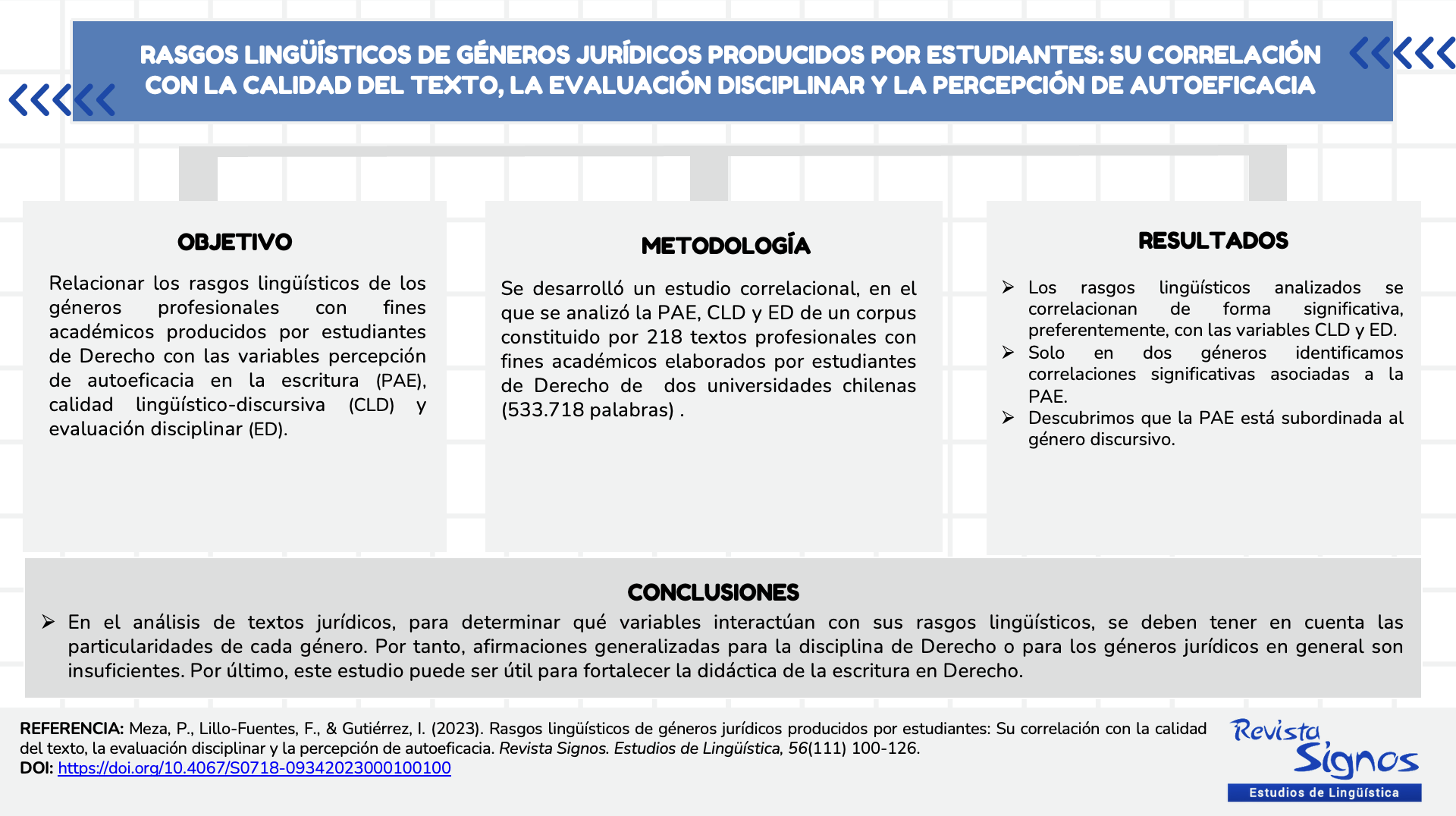Linguistic Features of Legal Genres Produced by Students: Its Correlation with the Text Quality, the Disciplinary Evaluation, and the Self-Efficacy Perception
Keywords:
language and the law, professional genres for academic purposes, linguistic-discursive quality, disciplinary assessment, self-efficacy perceptionAbstract
Despite the recognized difficulties associated with academic writing and the countless investigations about such type of writing and the specialized discourse, the study of the production of specialized texts has not been addressed in a comprehensive way. On the contrary, it has focused on specific aspects (cognitive, textual, disciplinary) without relating them, therefore, the complexity of writing as a multidimensional process has not been evinced. In this context, the objective of this research is to correlate the linguistic-discursive features of professional genres for academic purposes produced by law students with the variables: self-efficacy perception in writing (SPW), linguistic-discursive quality (LDQ), and disciplinary assessment (DA). Within the framework of a correlational study, we analyzed a corpus made up of 218 professional genres for academic purposes produced by law students from two Chilean universities. Among the main results, we highlight that the linguistic-discursive features analyzed correlate significantly and, preferably, with the LDQ and DA variables. Only in two genres we identify significant correlations associated with SPW. Besides, we found that SPW is subordinated to genre. In conclusion, the results show that, in the analysis of legal texts, to determine which variables interact with linguistic features, the distinctive features of each genre must be considered. Therefore, non-specific statements for the discipline of Law or legal genres in general are insufficient. In this sense, our research can be useful to strengthen the didactics of writing in Law.

Downloads
Published
How to Cite
Issue
Section
License
Copyright (c) 2023 Revista Signos. Estudios de Lingüística

This work is licensed under a Creative Commons Attribution 4.0 International License.
Copyright agreement:
Authors who have a manuscript accepted for publication in this journal agree to the following terms:
Authors will retain their copyright and grant the journal the right of first publication of their work by means of this copyright agreement document, which is subject to the Creative Commons Acknowledgment License that allows third parties to share the work provided that its author and first publication in this journal are indicated.
Authors may adopt other non-exclusive license agreements for distribution of the published version of the work (e.g., depositing it in an institutional repository or publishing it in a monographic volume) as long as the initial publication in this journal is indicated.
Authors are allowed and encouraged to disseminate their work via the internet (e.g., in institutional publications or on their website) before and during the submission process, which can lead to interesting exchanges and increase citations of the published work (read more here).


